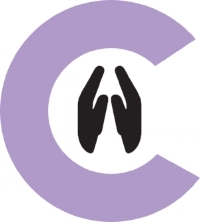Practicing gratitude might sound fluffy, unimportant, or unnecessary, but hard science shows there are many benefits to having a “gratitude attitude“ (sorry, I had to). Having a daily gratitude practice, like keeping a gratitude journal or writing daily “thank you” notes increases your energy levels, improves relationships, and makes you happier and healthier, according to science.

I personally started practicing gratitude a couple years ago when my husband was in the Air Force, and deployed to Qatar. I decided I had a choice to make every day: I could wake up and sulk in the obvious suck-i-ness of the situation, or I could choose make myself aware of all the things I had to express gratitude for. I KNOW this sounds fluffy now, but a study at the University of Berkeley, CA shows that when we practice a simple act of gratitude it actually rewires our brains to appreciate things more easily, and calms down the nervous system to counter the fight-or-flight stress response.
Neuroplasticity is new research that shows that our brains are like plastic, constantly changing due to our experiences and thoughts. When we start to think about something differently or choose a different emotion we carve out a new neural pathway in our brain. The more we do it, the more strong that neural pathway becomes, and eventually it becomes second nature. Therefore, according to the TIME magazine article What Gratitude Can Do For You, when we notice kindness and other gifts that benefit us, our brains become wired to seek out the positives in any situation.
According to Robert Emmons book Gratitude Works!, in a study he conducted, subjects who wrote down one thing they were grateful for reported being 25% happier and feeling more energetic for a full six months after following this practice for just three weeks. In addition, a gratitude practice has been associated with improved kidney function, reduced blood pressure & stress-hormone levels, and a stronger heart.
With so much research supporting the psychical and cognitive benefits of practicing gratitude, I decided to add it as one of the five subjects of Calma’s mindfulness curriculum. It is so important to teach children look at situations with a positive attitude, especially in the classroom, so that their minds are calm and ready for learning, instead of frustrated or discouraged.

Confession: I used to be referred to by some as “Negative Nellie”. I would to come home from work, and unload all the negative things that happened during my day onto my husband. It wasn’t until he pointed this out that I realized I was naturally really negative, and it was setting the tone for our household. I began to make the conscious effort to come home and list the positives of my day, and only bring up a negative thing if it were really worth it. I had no idea how much science supports this simple act of consciousness, and my husband does, too.
